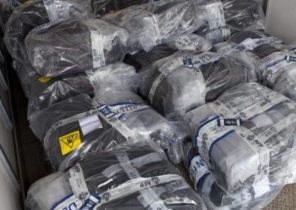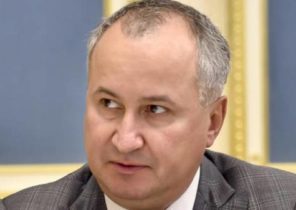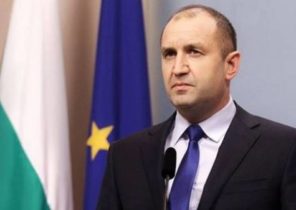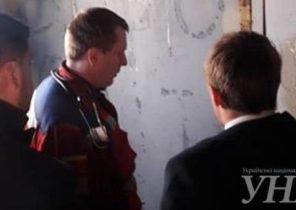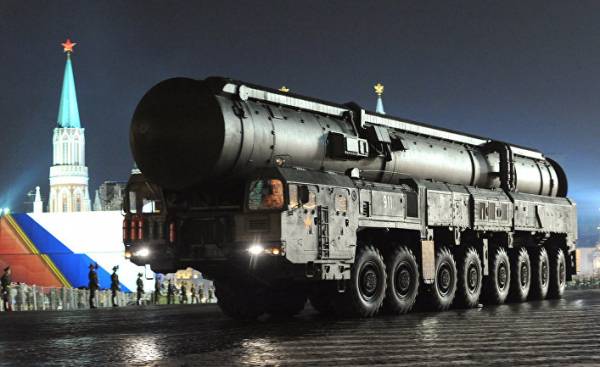
American historian Gregory Carlton (Gregory Carleton) talks about how the Russian interpretation of national history were organized around the many foreign invasions of the country. This interpretation of the past serves today to justify the aggressive foreign policy of the Kremlin.
Western power attacks. The Kremlin is taken. The head of state and Church in captivity. Russia on the verge of final collapse. Typical crazy paranoia? No, it was actually, and every Russian knows this story. People’s militia led by the nobleman and a butcher went to March on Moscow and drove out the foreigners.
As Russia routed the poles in the early seventeenth century. It is unknown outside of Russia invasion is Central to its thousand-year history, but hardly a unique event. Long before, in the XIII century the Mongols invaded Russia and ruled it for two hundred years. In the XVI century, the Crimean Tatars were burned and killed in Moscow of Ivan the terrible. To replace them has come the poles, who demonstrated similar tendencies piromania.
100 years after the expulsion of the poles Russia defeated the Swedish invasion. After another century it was attacked by Napoleon at the head of the unseen largest army. Later came Hitler with an even more incredible number of troops. Moreover, this list is not complete: many people in one time or another target Russia, a nation that traditionally speaks to the fact that its share has fallen much suffering.
It is a historical legacy, in my opinion, as nothing else creates the perception of Russia in the world and her place in it. In fact, it even allowed her without any doubt to assert its exclusivity, that is, the status of the eternal goal of constant foreign aggressions. It would be a mistake to assume that this approach was only a recent invention of the Kremlin and its propaganda apparatus. This belief for more than two centuries, is the Foundation of Russian national identity, in which they found themselves as reactionaries and revolutionaries. Since then, whatever the ideological atmosphere, the idea of forming a broad consensus and puts deeper roots in the minds.
Foreign threats
Russia probably represents a unique case among Nations her grade: her image is closely associated with its military actions, both past and present. Russia fought with most of the major States of modern Europe and all its nearest neighbors, and repeatedly, whether Lithuania, which in the XV century was a powerful Duchy, and Poland, with whom Russia got even in the eighteenth century (the annexation and disappearance from the political map).
The history of Russia is closely linked with the intrusion of the perception of the nation itself, and represents all these conflicts within the framework of the same scenario: the Russian response to a foreign threat. Such a reading of history, which for many Russians bound with the soul of the nation, allows you to discard any sent to their address charge (innate aggression, extreme paranoia, etc.). Although foreign actors may change, the play remains the same.
What is NATO, not the last in a series of hostile Russian Western coalition, which decided to move to its borders? When the poles took the Kremlin, they enlisted the help of mercenaries from across the continent. The Grand army of Napoleon was French only by half: it was the Austrians, Prussians, Croats, Italians, poles… Hitler’s Army on the Eastern front was different the same variety. As for the Crimean war of the 1850s that Protestant England and Catholic France did not get the support of Muslim Turkey in the attack on Orthodox Russia? This view of history leads us to the following conclusion: the only common feature of all Western countries — aggravated Russophobia.
The chief military feat in history was the Second world war, when rising at the head of the Soviet Union Russia fled Hitler. The day of victory over Nazi Germany was the weekend and celebrated in Russia, like no other holiday. This is the incomparable object of Patriotic pride, in the sense that this military triumph tells the Russians that they represent as a people. And the degree of this identity can only lead to new applications of their exclusivity. As stated by Vladimir Medina shortly before his appointment as Minister of culture in 2012, the Russian “make history”. Yes, they make it because that saved the world (and not only during world war II).
The role of Savior
These words of Medina (then often repeated by historians and politicians) are based on models arising from this mythical history, in which Russia has to defend itself from invaders with global plans. With the difference in the age of Napoleon and Hitler suffered the same fate. With the retreat of Napoleon from Russia in 1812 was followed by a series of Russian victories and the formation of the coalition in order to wrest Europe from the clutches of the French Emperor. Two years later Paris fell. In this view, the history of the final defeat at Waterloo in 1815, represents only the expected completion of the process, because the fatal wound were inflicted by the Russians.
In addition, when it comes to demonstrating the salvific role of the Russian nation, the course can go even distant memories of the Mongol invasion in the Middle ages. When the Mongols invaded the Russian (and Ukrainian and Belarusian) lands, something unexpected happened: at some point, they are unable to advance further to the West, and they represent the threat is gone. Who, if not the ancestors of modern Russians sacrificed themselves to protect the rest of Europe from this “scourge of God”?
This statement also is not new and is popular since the nineteenth century. Inspired the Bolshevik revolutionary Nikolai Chernyshevsky called his countrymen “the saviors from the yoke of the Mongols, which they kept on the powerful neck of his, not allowing him to Europe, the former wall she really exposed all the shots, that wall is half-defeated enemies.” At the turn of the twentieth century, this belief became a doctrine in the highest circles of the military hierarchy.
Defensive position
The history of Russia, which once again answers the call of fate, it seems like never viable. In case again comes the concept of fascism, but this time without the swastikas and brown shirts. As stated in the new “history of the Second world war”, the 12th and last volume of which is called the “Great Patriotic war”, this new fascism characterizes any country, which strives for authoritarian unipolar world order, in particular under the pretext of spreading democracy and protecting human rights.
Released under the official support of the Ministry of defence of the book, with a Preface signed by President Vladimir Putin (and not only him) openly States that America embodies such a threat, forcing Russia to re-assume the traditional role of protector. As a consequence, all the initiatives of the US and its NATO allies only confirm this theory, at least within the country. For example, looking East, foreign military units were not placed in Poland in 1941.
In addition, this defensive position fits perfectly into the recent steps of Russia. The annexation of Crimea and intervention in Eastern Ukraine was allegedly only the necessary steps to protect the Russophile population from the hostility of the government. Similarly, the military operation in Syria was originally presented as a necessary military campaign to destroy Islamic state (banned in Russia as a terrorist organization, approx.ed.) the occurrence of which is, as constantly repeated in Russia, is a direct consequence of the American invasion of Iraq in 2003.
Strategic advantage
Anyway, for all these view, you can highlight and different tradition. The history of the great nation, which constantly had to deal with external aggressors, closely intertwined with the fact that the key to its survival was the military might. But the power, whatever you thought doesn’t always conquest, the expansion or the formation of a national army: it can also be achieved by treatment of another flight on the political front.
In other words, although Russia is unable to compete with the USA and NATO in terms of direct military force, it still can be a strategic advantage: it can destabilize the country or coalition able to resist her. Understanding this practice achieve power by other means represents the recent initiatives of Russia in a different light.
Its annexation of the Crimea and East of Ukraine means that she will never be able to join NATO. Blind bombing in Syria is exacerbating the immigration crisis, which becomes a threat to the unity of the European Union. Explains the goal and the Russian support for extreme right-wing parties across the continent.
Cyber attacks to assist in the election Donald trump President of the United States (he was the preferred candidate of Moscow, because in particular called NATO “legacy”) was the last and perhaps most striking initiative of this kind (government, incidentally, he categorically denies his involvement).
Insulation — accepted fate
That now flies from Russia to our ears is really like comes from “another world” as Angela Merkel in 2014. This world has its own internal logic, and he clings to her. Her armed intervention could be interpreted as defensive steps, the impact on domestic policy of the neighbouring countries to counter their aggressive policy, and the isolation is perceived as fully adopted by all fate.
This last point sheds light on one important point in the myth of Russian exceptionalism: in a hostile world the Russians can ultimately only count on themselves. Returning to the original example, how the West reacted to the Mongol invasion? The Swedes and the Germans, like Judas, chose this moment to attack the country. For this reason, Russia has never had much confidence in the West. Who became Emperor in 1881, Alexander III liked to joke about this, that Russia has only two allies: the army and Navy. Not by chance these words today triumphantly returned at the bills and advertising in the subway.
Anyway, this picture is correct only at the moment. With the advent in the White house Donald trump, who enthusiastically criticizes everyone, except Russia, and with the approach of the serious implications of the elections in France, Germany and the Netherlands the situation is likely to change.

